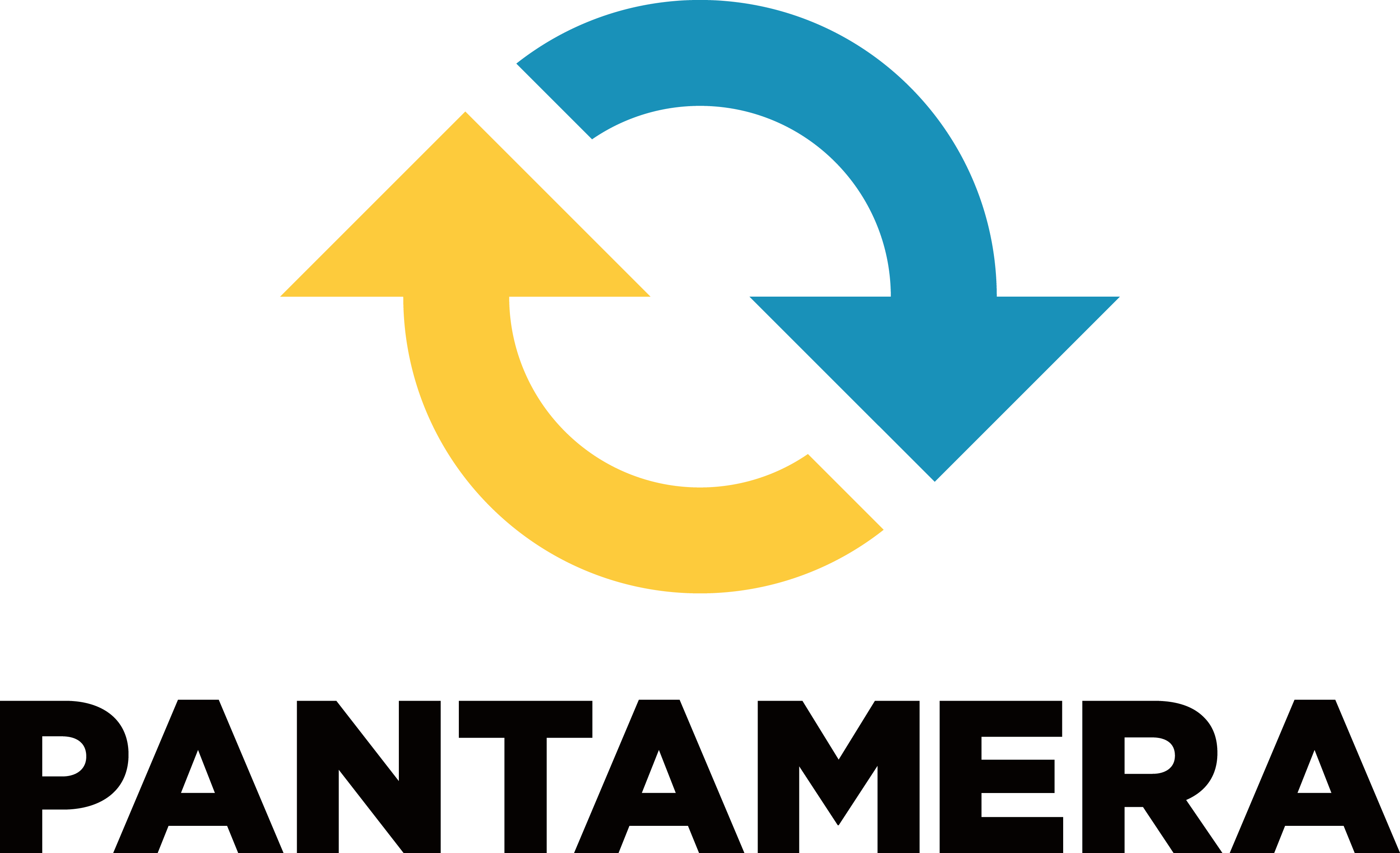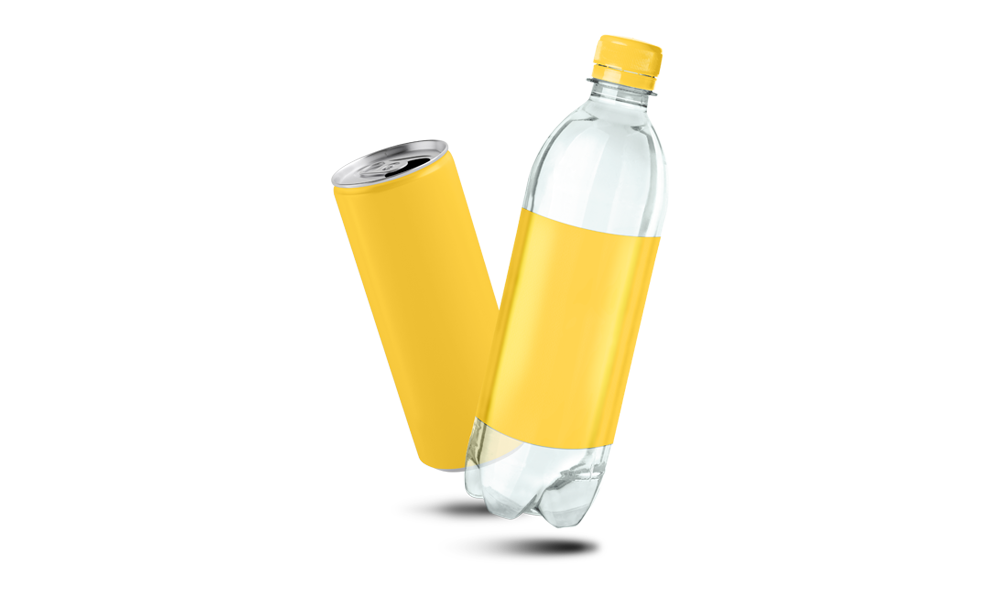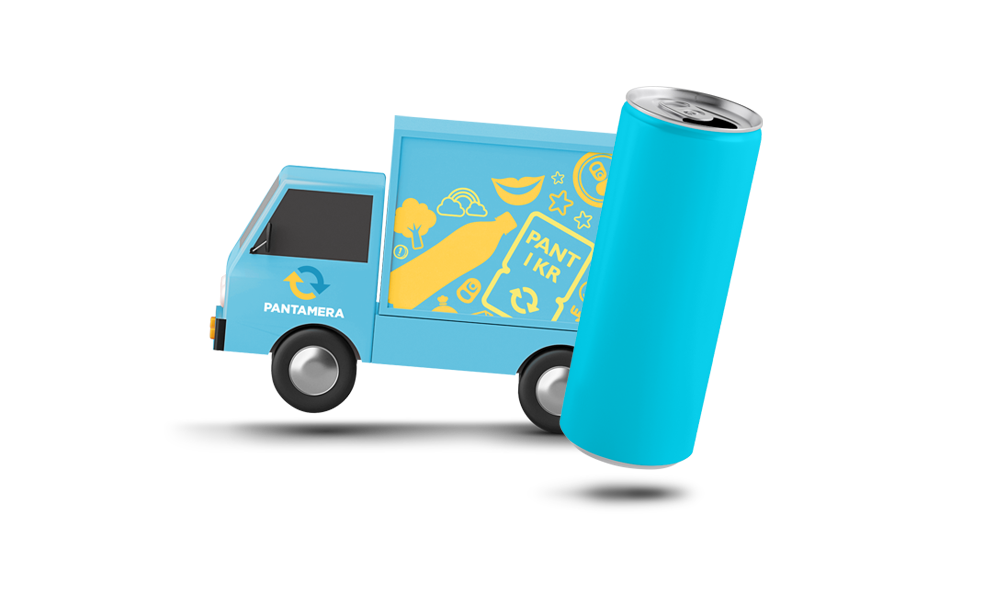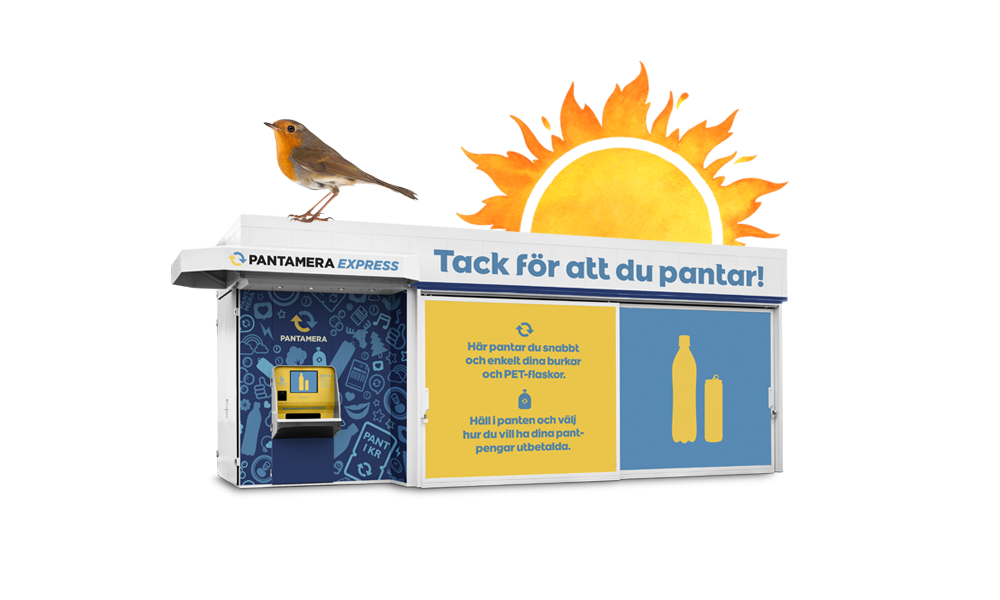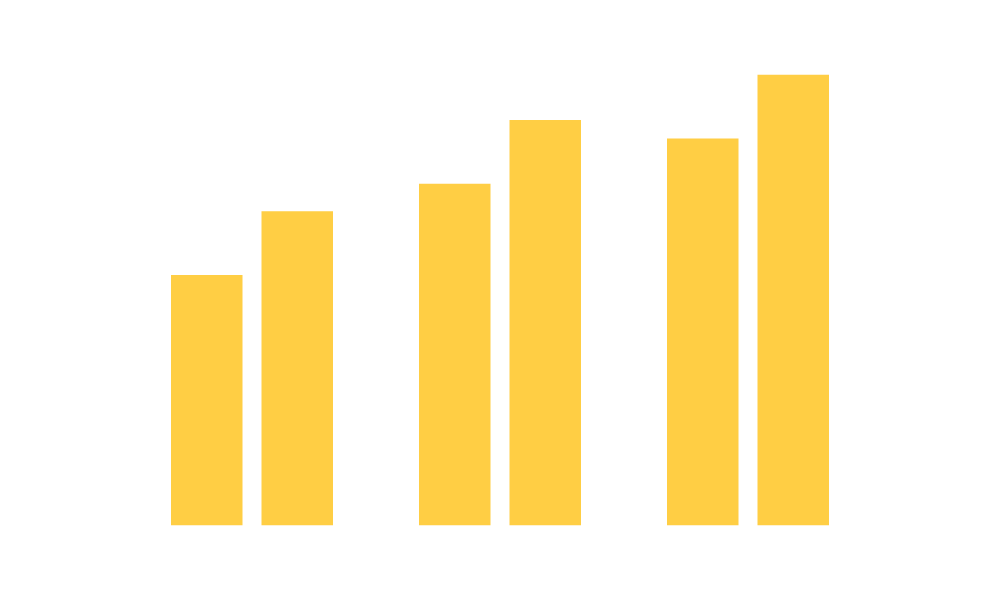From really good to even better. In 2019, Pantamera inaugurated a new plastic sorting plant to improve the quality of the recycled material, so that even more plastic can be recycled to make new bottles. In 2019, the amount of food-approved plastic from the plant increased by 10%, contributing a further reduction in carbon dioxide of just over 25,000 tonnes.
The Pantamera factory in Norrköping is one of the most modern in Europe, recycling around 9 million cans and bottles every day. At the start of the summer, we inaugurated the new upgraded sorting plant, which has further improved the quality of the recycled PET material. This has been done so that an even larger proportion of the recycled material can be used to make new bottles, thereby safeguarding the circular flow.
The material that can be recycled to produce food-approved plastic, and thereby be used in the manufacture of new bottles, is the uncoloured plastic. It is therefore important to extract as much uncoloured plastic as possible in order to maximise the environmental benefit.
- In order for a recycling system to create the maximum environmental benefit, it needs to have a closed cycle. This means that the plastic material that is sorted in the plant will be able to be used to make new, food-approved plastic bottles. With our latest investment, we have managed to increase this proportion by 10 per cent, says Christer Rynegård, Project Manager.
About the new sorting plant
In 2019, more than 2,15 billion packages arrived at Pantamera's state-of-the-art facility in Norrköping. In the same year, 19 870 tonnes of aluminium, 23 244 tonnes of PET material and 1 377 tonnes of HDPE (cap material) were recycled.
Improving and developing the plant in order to maximise the environmental benefit of the deposit system is a never-ending process. In 2018, we invested in a new plastic sorting plant, which was inaugurated in May 2019. The aim of the investment was to increase the amount of recycled uncoloured plastic, which can be used to make new food-approved packaging. The previous technology was based solely on optical sorting, whereas the new plant can also detect the type of plastic material that makes up the packaging.
The new plant has significantly improved the sorting of uncoloured and coloured plastic. The results show a 10 per cent increase in uncoloured plastic material that was previously included the coloured fraction. The 10 per cent increase in the amount of material going from open to closed recycling is reducing the environmental impact of the bottles. If a calculation is performed based on the impact of the deposit system on collected annual volumes, this corresponds to a reduction of more than 25,000 tonnes of CO2 equivalent annually. In addition to the reduction in carbon dioxide, the environmental impact from acidification, eutrophication, ground-level ozone and ozone depletion is being reduced by between 15 and 30 per cent.
